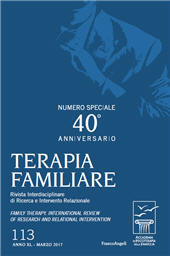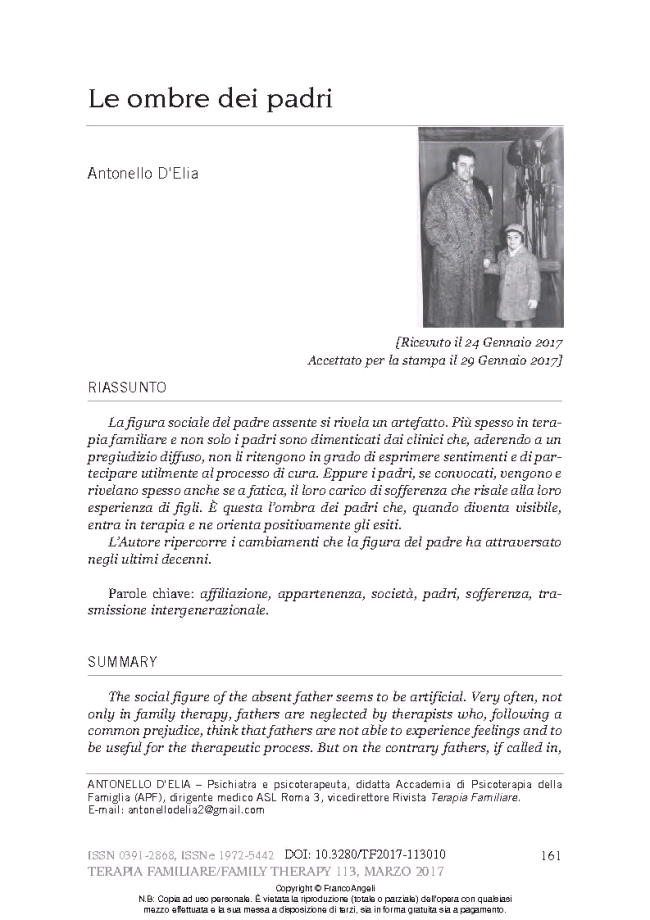Le ombre dei padri
161-177 p.
La figura sociale del padre assente si rivela un artefatto. Più spesso in terapia familiare e non solo i padri sono dimenticati dai clinici che, aderendo a un pregiudizio diffuso, non li ritengono in grado di esprimere sentimenti e di partecipare utilmente al processo di cura. Eppure i padri, se convocati, vengono e rivelano spesso anche se a fatica, il loro carico di sofferenza che risale alla loro esperienza di figli. È questa l'ombra dei padri che, quando diventa visibile, entra in terapia e ne orienta positivamente gli esiti. L'Autore ripercorre i cambiamenti che la figura del padre ha attraversato negli ultimi decenni. [Testo dell'editore].
The social figure of the absent father seems to be artificial. Very often, not only in family therapy, fathers are neglected by therapists who, following a common prejudice, think that fathers are not able to experience feelings and to be useful for the therapeutic process. But on the contrary fathers, if called in, they come and sometime they express their suffering as child. This is the "shadow of fathers" and if they come in therapy they can turn the therapy process positively. The Author recalls the fathers' last decades changing. [Publisher's Text].
Forma parte de
Terapia familiare : rivista interdisciplinare di ricerca ed intervento relazionale : 113, 1, 2017-
Artículos del mismo número (disponibles individualmente)
-
Información
Código DOI: 10.3280/TF2017-113010
ISSN: 1972-5442
KEYWORDS
- Affiliazione, appartenenza, società, padri, sofferenza, trasmissione intergenerazionale
- Affiliation, belonging, society, fathers, suffering, intergenerational transmission



